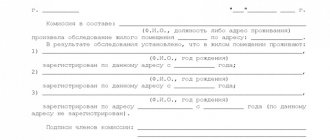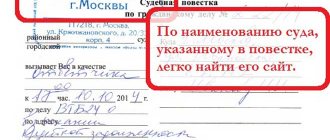Every year, the level of child crime increases, and not only in our country - throughout the world. Often, when examining the personality of an adult defendant, the court finds out that even as a teenager, this person was already registered with law enforcement agencies as a violator.
At the same time, it is believed that the “police children’s room,” as the specialized department for working with children was previously called, prevents the growth of child crime. Is it really? When can minor children be registered with the PDN and how can they appeal against police actions if such actions are clearly unfounded? Read in this article.
The concept and essence of registration in the PND
What does it mean to be registered with the school or the police? There are several opportunities to monitor, supervise and prevent the actions of difficult teenagers. First of all, such activities include internal school accounting (hereinafter referred to as VSHU). It is carried out independently at the educational institution; the police and other authorities are involved only in cases of serious violations or the need for assistance.
The class teacher, teachers, social pedagogue, psychologist, and deputy director for educational work are involved in working with a teenager. The work is educational in nature, conversations are held with a psychologist, a social teacher, absenteeism is recorded, the teenager’s family is visited, and his living conditions are examined. Moreover, conversations are conducted both with the minor and with his parents, and sometimes with other relatives and friends.
A “problem” child can be registered internally at school or registered with the juvenile affairs department
If the school itself cannot cope with the teenager’s behavior, an appeal should be made to the juvenile affairs department. Each police department has a regular district police officer and a traffic police inspector. Different people care for adults and children. Each police unit is assigned a specific territory, which includes residential buildings and schools. In large cities (or in especially criminal areas) schools have a special school inspector, who is also part of this unit. It also helps to carry out VSHU.
Arbitrage practice
Most often, courts refuse to satisfy requests to recognize minors as having lost the right to use residential premises. Here are some examples:
- Mother and father divorced, the child moved with the woman, but remained registered at his father’s address. The man decided to discharge him through the court (Decision No. 2-262/2020 2-262/2020(2-3041/2019;)~M-3086/2019 2-3041/2019 M-3086/2019 dated February 13, 2021 to case No. 2-262/2020). The demands were denied.
- The woman registered her daughter-in-law and grandson in her apartment. After her son’s divorce, she wanted to discharge both of them, citing the rights to other housing for the mother and child, or the opportunity to rent an apartment under a rental agreement (Decision No. 2-2855/2020 2-2855/2020~M-15257/2019 M-15257/2019 dated January 29, 2021 in case No. 2-2855/2020). The requirements have been satisfied.
- The man decided to expel his grandson and granddaughter from his home. The marriage between his son and the children’s mother is dissolved, they live separately (Decision No. 2-49/2020 2-49/2020(2-524/2019;)~M-597/2019 2-524/2019 M-597/2019 dated January 15, 2021 in case No. 2-49/2020). The claim was denied.
Reasons for registering with the PDN
If a child commits any illegal act, the minor is not always registered with the police. What actions can cause a person to contact the PDN? This may be a certain fact of action (for example, theft, fight, beating, extortion) or constant complaints about the teenager’s behavior at school. Inspectors respond especially quickly to collective complaints and to requests from teachers regarding children in high school.
The following minors are registered with the PDN:
- observed using alcohol, drugs or other illegal drugs;
- those engaged in begging, vagrancy, running away from home or boarding school;
- regularly violating administrative rules;
- who have committed a crime but have not reached the age of responsibility for this offense;
- under investigation;
- those convicted of criminal charges but given a suspended sentence;
- released after serving a sentence for a criminal offense or amnesty.
If a minor drinks alcohol, he is registered with the police
Tasks
In-school accounting is aimed at:
- Prevention of neglect, crime, negative behavior of students.
- Detection and elimination of causes, factors, conditions contributing to the commission of offenses and neglect.
- Social and pedagogical rehabilitation of children in a socially dangerous situation.
- Protection of the rights and interests of minors.
- Timely identification of families and children in difficult life situations.
- Providing socio-psychological and pedagogical assistance to minors with behavioral deviations and learning problems.
Rules and procedure for registering a minor
Only on the basis of the school's Charter and special Regulations on the prevention of offenses is a minor registered with the High School. The basis may be a report from the teacher, written complaints from parents, documents from the PDN.
The decision on production is made by the School Council collectively. Parents are required to be invited to the meeting, but their opinion will not necessarily be taken into account - the Council makes such a decision independently. The reasons may be systematic absenteeism, bad behavior, or committing crimes.
For registration in the PDN, more compelling reasons listed above are required.
Facts of committing a crime are entered into the police report, and within three days they are received by the KDN. Complaints about a student who is a member of the High School are sent directly to the PDN inspectors.
The decision to register is made at a special meeting of the Control Committee, where parents are also invited. The composition of the commission is necessarily collegial, consisting of several employees from different services:
- administration representative;
- guardianship and trusteeship authority;
- a police officer from the juvenile department;
- assistant prosecutor;
- psychologist.
If the child studies in an educational institution, the school director or his deputy is invited.
The commission makes a decision within 10 days from the date of the meeting, it is signed by the head of the police department, and a special registration card is issued for the child.
The decision to register with the PDN is made only collectively
Psychologists, social services, and police officers work with registered children. Preventive conversations are held not only with children, but - above all - with their parents (or persons replacing them). Employees check to what extent adults fulfill their obligations to children - they are involved in their maintenance, upbringing, training, monitor their moral behavior, and whether they are treated cruelly. Indeed, in most cases, a child’s deviant behavior comes from the family - either such actions are normal there, and the teenager does not understand the line between “dos” and “nots,” or he is simply not given the proper time, he is left to his own devices and the negative influence of the society around him .
Is it possible to discharge a child from his apartment?
If an apartment or a share in it belongs to a minor by right of ownership, the subsequent sale and deregistration will require permission from the guardianship authority.
What the procedure looks like:
- Parents find a new room in which the child will be registered. A preliminary purchase and sale agreement is concluded.
- The permission of the guardianship authority is issued after the submission of documents on the transaction with the property of the minor.
- The main purchase and sale agreement is concluded.
- The son or daughter is registered at the new address at the same time as the extract from the old one.
In total, everything takes about 1-2 months.
Documentation
Before discharging a child from an apartment, you need to prepare a package of documents for the Department of Internal Affairs of the Ministry of Internal Affairs:
- Consent of separately registered parent.
- Application on form No. 6.
- Passports of the legal representative and a minor over 14 years old.
- Certificate (up to 14 years old).
- An act of the guardianship authority appointing a guardian if there are no parents.
Consequences of registering with the police
The teenager and parents will be under constant supervision. Conversations will begin with them, a program may be developed that includes certain classes, diagnostics, and testing. In case of any incident on the territory of a school, area or where this teenager was seen, the police have the right to check him for involvement in the act.
Through school and social services, the child can be involved in special extracurricular activities, volunteering, or organized summer vacations or training. Moreover, such events will become “conditionally voluntary.” That is, it is possible to refuse them, but the refusal will be entered on the registration card and will be regarded as an unwillingness to change one’s life and improve. In addition, parents may be required to schedule where and how the child will spend the summer or winter holidays.
NEED TO KNOW. PDN employees are not required to inform the parents of such children about all the actions that they perform in relation to the child. They have the right to visit or call the child even without notifying the parents, have a conversation with him, and offer to participate in some event.
The military registration and enlistment office requests information about registration in the PDN. The consequences may also be unfavorable for those who wish to enroll in some secondary educational institutions and universities, especially those focused on public service (military, border guard, legal and others). Such organizations often request a certificate from the police indicating whether the future student is registered.
Being registered may become a barrier to entry into some universities
How to avoid registration?
Even if your child has committed an offence, it is not necessary that he will come under close police attention. If it is possible to change a teenager’s behavior without extreme measures, the police will always cooperate.
- The offense must not be too serious.
- The offense was committed for the first time.
- The child's family must have a prosperous status. For this purpose, special checks are carried out to see how well the children are provided with food, clothing, necessary office supplies, and so on. The relationship of the child to his parents and vice versa are clarified. Neighbors may be interviewed.
- A positive reference from school is required, if available - from sports sections, clubs, extra classes that the child attends;
- Feedback from neighbors, teachers, tutors, and any other citizens about the positive actions of a minor. If he once participated in the volunteer movement or helped in charity, he can and should also provide references, certificates, and any written evidence.
Parents must be present at the KDN meeting, hand over all documents, and try to convince the staff that they will take control of the child and correct his behavior. Moreover, they must give such an obligation in writing - in the form of a receipt. In the process of work, they must also inform the inspector about positive changes in the teenager’s behavior.
If an administrative or criminal case has already been initiated and the child is 16 years old, registration of a PDN cannot be avoided.
Contents of the meetings
Authorized persons discuss and approve a plan of individual preventive work with a minor, as well as his parents (representatives), set deadlines for implementing the list of activities, and appoint responsible persons.
Parents must be present at the meeting. They are invited by the class teacher. He also brings to the attention of parents the decisions made at the meeting if, for good reasons, they were unable to attend the discussion. Representatives of the minor are sent an official notification indicating the date of the meeting, the protocol number, and the reasons for registration/removal from school registration.
How to appeal registration?
You can appeal the registration of a minor with the PDN for two reasons:
- illegal or unreasonable reason;
- failure to comply with the registration procedure.
In the first case, an appeal is possible on the basis that the child’s actions were misinterpreted, or the recording was carried out solely based on complaints from third parties, without a comprehensive study of the problem. There are often cases when an unwanted child is simply slandered for no reason (teachers, neighbors or similar teenagers).
It is possible that the child was wrongly accused or slandered
Also, the basis will be the fact that the administrative protocol has been canceled or charges against the teenager in a criminal case have been dropped due to his non-involvement. If it is proven that the child did not do anything, then the registration must be cancelled.
In the second case, the child may be punished for the offense committed, but it is possible to cancel the production itself due to the fact that it was procedurally incorrect. For example, parents were not invited to the commission, or it was not held at all, or it was not carried out collegiately.
The complaint is filed with the district court at the place of residence. But it can also be submitted to the KDN, and they themselves must submit it to the court within 3 days. 10 days are allotted for consideration of the application.
Powers of the Council
The Prevention Council has the right to petition the director of an educational institution for:
- Reprimanding a minor.
- Drawing up an individual plan for additional classes during the quarter or during the holidays.
- Expressing gratitude to a minor.
- Establishing a deadline for submitting debts in academic subjects and monitoring their compliance.
- Postponement of the end date of a quarter or academic year for a student who has been undergoing long-term treatment or in difficult living conditions.
Deregistration of a minor
But if the child was registered with the PDN for good reason, the consequences will not be so critical if he manages to improve and get out of this situation with a minimum of negativity. If parents and all surrounding adults can convey to a teenager that his actions harm not only others, but also himself, if he realizes all the consequences of his misdeeds and will no longer commit them, the main goal of the work of adults has been achieved.
If positive changes are noted in the child’s life and behavior, deregistration is possible. A request for withdrawal must be submitted no earlier than 6 months from the date of application. To do this, you must provide the following documents:
- application from parents and/or social teacher;
- family visitation certificates;
- a certificate of work done with the child and his family, with conclusions about his changes;
- characteristics of a teenager from school, additional sections and clubs for the last period.
Also, a minor is removed from the High School from the moment of graduation from an educational institution or upon transfer to another school. But it should be taken into account that his card and data are transferred to a new school and there a new decision is made to continue working with the difficult teenager. If the child is registered with the PDN, then the card is transferred to an inspector of another district, without a new consideration of the case, without being removed from the register.
A teenager who has reached the age of 18 is automatically deregistered from the PDN.
TsVINP
This is the name of the Center for Temporary Isolation of Juvenile Offenders - a closed institution where out-of-control, uncontrollable teenagers, starting from the age of 14, are placed. PDN inspectors have the right to prepare materials for the court for a decision to place a child in such a center (up to 30 days) if they have established the following:
- a teenager, who was put on preventive registration and sent to a specialized closed educational institution, left it without permission;
- the offender is so dangerous that other children may suffer from his actions. Thus, in practice, there is a case where only isolation saved a 4-year-old sister from the brutal beating of her 15-year-old brother;
- A minor who has committed a socially dangerous act has no place of residence, is engaged in vagrancy, has no relatives, etc. It happens that children leave on passing transport to another city, where they are placed in the Central Medical Institution until the issue of being sent home is decided;
- An offender who has reached the age of 14, whose identity cannot be established, was detained.
Features of registering a minor
Application to the High School is the prerogative of the educational institution and does not have any special consequences. In addition, it should be understood that often moving to another school solves all problems, since the child may simply be treated with prejudice and not given a chance to improve.
Registration of a minor with the police is more serious, and every effort must be made to avoid ending up in the police department. If this happens, it is worth helping the child get out of this situation.
Registering a minor with the police is a last resort measure designed primarily to help the teenager
Most of a child’s behavior is determined in the family, and unfortunately, there are no fewer dysfunctional families. And if parents and relatives cannot help the child adapt to the world around him, then other services should help him with this.
You should not think that registration will put an end to the child.
Properly done work helps the child get comfortable, understand his thoughts and actions, so that by the time he reaches adulthood (or earlier), the teenager will improve and stop committing crimes. After all, the main task is not to punish the offender, but to promote changes in his life so that he himself stops committing antisocial acts. Order a free legal consultation







